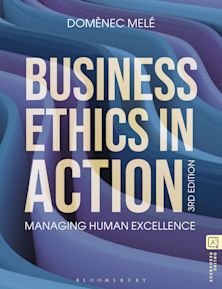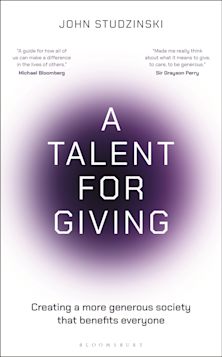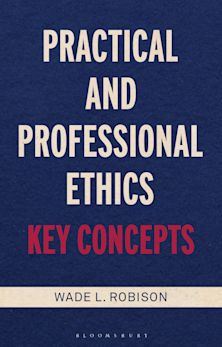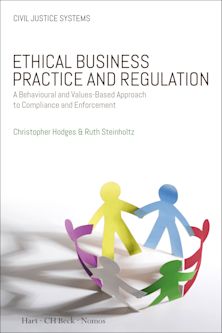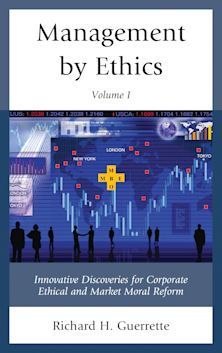- Home
- ACADEMIC
- Business & Management
- Business Ethics
- Exploring Capitalist Fiction
You must sign in to add this item to your wishlist. Please sign in or create an account
Description
Fiction, including novels, plays, and films, can be a powerful force in educating students and employees in ways that lectures, textbooks, articles, case studies, and other traditional teaching approaches cannot. Works of fiction can address a range of issues and topics, provide detailed real-life descriptions of the organizational contexts in which workers find themselves, and tell interesting, engaging, and memorable stories that are richer and more likely to stay with the reader or viewer longer than lectures and other teaching approaches. For these reasons, Exploring Capitalist Fiction: Business through Literature and Film analyzes 25 films, novels, and plays that engage the theories, concepts, and issues most relevant to the business world. Through critical examinations of works such as Atlas Shrugged and Wall Street, Younkins shows how fiction is a powerful teaching tool to sensitize business students without business experience and to educate and train managers in real businesses.
Table of Contents
Introduction
Chapter 1. The Rise of Silas Lapham: A Story of Self-Identity, Self-Respect, and Morality
Chapter 2. Taking a Look at Edward Bellamy's Looking Backward
Chapter 3. Frank Norris's The Octopus: An Epic of Wheat and Railroads
Chapter 4. The Financier: Theodore Dreiser's Portrait of a Darwinian Businessman
Chapter 5. Abraham Cahan's The Rise of David Levinsky
Chapter 6. Babbitt: Sinclair Lewis's Portrait of a Middle-Aged Middle Class Businessman
Chapter 7. "Who is Henry M. Galt?": A Review of Garet Garrett's The Driver
Chapter 8. F. Scott Fitzgerald's The Great Gatsby
Chapter 9. An American Romance: King Vidor's Epic Film of Immigration and the American Dream
Chapter 10. Arthur Miller's Death of a Salesman: A Case of Self-Delusion
Chapter 11. John P. Marquand's Point of No Return
Chapter 12. Henry Hazlitt's Time Will Run Back: A Tale of the Reinvention of Capitalism
Chapter 13. Executive Suite: A Story of Corporate Success and Succession
Chapter 14. Cash McCall: The Story of a Heroic Corporate Rider
Chapter 15. Sloan Wilson's The Man in the Gray Flannel Suit
Chapter 16. Atlas Shrugged: An Epic Story of Heroic Businessmen
Chapter 17. Sometimes a Great Notion: The Story of a Family Who Would Never Give an Inch
Chapter 18. Wilfrid Sheed's Office Politics: A Lesson about Organizational Conflict
Chapter 19. The Franchiser: Stanley Elkin's Tale of a Man Who Wanted to Costume the Country
Chapter 20. Glengarry Glen Ross: A David Mamet Word Play
Chapter 21. Wall Street: Oliver Stone's Zero-Sum Vision of Capitalism
Chapter 22. Tucker: The Man and His Dream
Chapter 23. David Lodge's Nice Work: A Tale of Two Cultures
Chapter 24. Other People's Money: A Tale of Capitalism and Creative Destruction
Chapter 25: Wall Street: Money Never Sleeps
Conclusion
Product details
| Published | Oct 24 2013 |
|---|---|
| Format | Ebook (Epub & Mobi) |
| Edition | 1st |
| Extent | 332 |
| ISBN | 9780739184288 |
| Imprint | Lexington Books |
| Illustrations | 1 Table |
| Publisher | Bloomsbury Publishing |
About the contributors
Reviews
-
This richly annotated bibliography of novels, films, and plays could be read in conjunction with studying business. Arguing that these imaginative works offer insights not found in textbooks or case studies, Younkins explicates their power to represent as well as entertain. After a summary introduction, the author presents 25 brief, chronological chapters, each focusing on a separate work, beginning with William Dean Howells's The Rise of Silas Lapham (1885) and ending with Oliver Stone's film Wall Street: Money Never Sleeps (2010). In summarizing these works, Younkins emphasizes universal themes, such as amorality in Theodore Dreiser's The Financier, the American Dream in Scott Fitzgerald's The Great Gatsby, individualism in Ken Kesey's Sometimes a Great Notion, and competition in David Mamet's Glengarry Glen Ross. After a brief conclusion that again summarizes the content, the book ends with appendixes that list additional business novels, plays, and films . . . [T]his volume serves as an ideal primer for an instructor who wishes to include literature in a business course. Summing Up: Recommended. Lower- and upper-division undergraduates; faculty; general readers.
Choice Reviews
-
Exploring Capitalist Fiction, a new volume of literary analysis by Dr. Edward W. Younkins, offers perceptive, relevant, and engaging commentaries on 25 works of fiction which portray the business world and its relationship to all areas of human life. . .Younkins is to be commended for emphasizing the value of fiction as a teaching tool for both students of business and individuals immersed in the business world. . . .Exploring Capitalist Fiction is an excellent means to appreciate the richness and variety of fictional portrayals of business, especially since the Second Industrial Revolution of the late 19th century. The book offers a concise introduction to many works and endeavors to motivate readers to seek out and experience the original novels, plays, and films.
The Rational Argumentator
-
Exploring Capitalist Fiction may not sound like a page-turner. But Edward W. Younkins, a professor of accountancy and director of graduate programs in the Department of Business at Wheeling Jesuit University in West Virginia, has produced a most appealing and useful text, one that can satisfy a variety of interests. ... Younkins gives the reader a good mix of works. There are novels, plays and movies, and in some cases such as "The Great Gatsby," novels that have been made into movies a number of times—1949, 1974, 2000, 2003—an indication, perhaps, of the story's enduring attraction. ... In sum, there is a lot to like and a lot of learn in Exploring Capitalist Fiction.
El Paso Times
-
Younkins puts together a canon of economics-themed fiction here and does not stop with works that are just still popular today. ... Anyone who teaches business or economics will find in Younkins’s book an extremely helpful guide to expanding one’s teaching beyond the usual non-fiction standards to connect with students on a level that goes beyond mere concepts and into the illustrations of how humans truly interact with the economic systems around them. In other words, this book will help instructors use art to improve instruction while helping students consume popular culture more insightfully.
Mises Review
-
Although his prior books establish Dr. Younkins as a scholarly and prolific philosopher of liberty, Exploring Capitalist Fiction focuses not on the philosophy of business but on the complex lives of fictional men who implement it. Its twenty-five plot summaries illustrate, unsurprisingly, that businessmen are neither more nor less moral or confused than the rest of us, from the crony-capitalist railroaders in Norris's The Octopus, Cahan's wealthy but unhappy David Levinsky, and Lewis's terrified conformist Babbitt to more heroic, less conflicted figures like Hawley's Cash McCall, Kesey's Stamper family, and King Vidor's Steve Dangos. Dr. Younkins occasionally offers a valuable philosophical or economic insight, but the book is principally a welcome, fascinating, even-handed study of business and capitalism in literature.
John Egger, Towson University
-
Exploring Capitalist Fiction is one of those books I have needed for a long time, but just didn’t know it. In this volume, Younkins assembles a remarkable collection of insights about how business is portrayed in literature and film. Perhaps the most remarkable feature of the book is Younkins’s ability to balance historical viewpoints with contemporary and whimsical perspectives with serious ones, across both film and print. And he does so while striking a balance between supportive and critical outlooks on business and capitalism that I would not have thought possible. This is an excellent book.
Marshall Schminke, University of Central Florida












